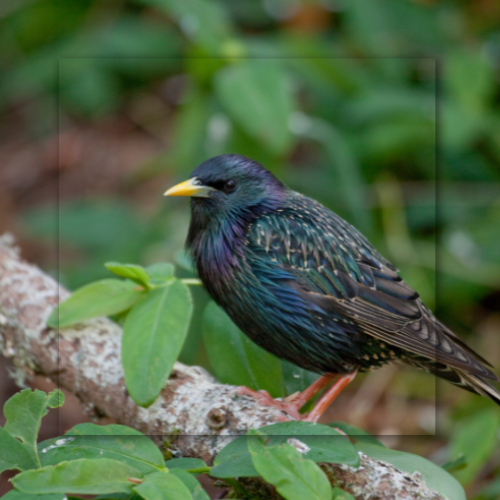
Bird Removal And Control
As you enjoy the natural beauty that surrounds us, you may also encounter the less-than-pleasant side of mother nature. One common issue residents face is certain types of birds that can create various problems for homeowners and businesses alike. While you might appreciate the melodic chirping and fluttering wings of these creatures at first glance, they can quickly transform from charming wildlife into nuisances that disrupt your everyday life.
Problems Caused By Common North Atlanta Species
Before diving into the challenges, pigeons, starlings, and sparrows are among the more common avian annoyances found in this region. Not to be outdone, crows and woodpeckers also make their presence felt. Each species has its own unique set of difficulties they bring to your environment. Pigeons, for instance, are notorious for their droppings, while woodpeckers can wreak havoc on your wooden structures. Knowing the enemy, so to speak, is the first step toward finding a long-lasting solution.
If you're still not convinced that these animals can be more than a minor inconvenience, consider the following. First, there's the issue of property damage. Birds can cause significant harm to buildings and other structures. For example, acidic avian droppings can erode building materials, leading to long-term damage and costly repairs. Nesting behaviors can also obstruct ventilation systems and gutters, causing water damage and other problems.
Then there’s the issue of health risks. Avian pests can carry parasites and spread diseases. Droppings, feathers, and nesting materials are not only unsightly but can become breeding grounds for bacteria, fungi, and viruses. They can contribute to health problems like allergies and respiratory issues if not properly managed.
Moreover, these animals can become disruptive in other ways. Whether it's incessant crowing disrupting your sleep or more aggressive species chasing away the more benign wildlife in your yard, the presence of avian pests can affect your quality of life.
Why DIY Solutions Aren’t Always Best
In the era of DIY culture, it's tempting to tackle problems like this yourself. However, when it comes to nuisance birds, you might find that amateur tactics are short-lived at best or make the problem worse at worst. Misidentification of the species can lead to ineffective treatment, and you might even run afoul of local laws that protect certain species. Improperly installed deterrents can fall and cause damage or injury, leaving you liable for the consequences. Plus, without specialized equipment or knowledge, you’re unlikely to address the root causes or understand the broader ecosystem implications of your actions.
As North Atlanta’s premier pest control service, Grade A Critter is committed to providing effective, humane, and safe solutions to all your avian problems. With more than a decade of experience, our team of professionals uses state-of-the-art techniques and equipment to deal with these issues effectively.
We conduct thorough inspections to correctly identify the species causing trouble, assess the scale of the problem, and determine the most appropriate treatment plan. Not only do we remove the existing nuisance, but we also implement preventive measures to keep it from returning. Our environmentally friendly and ethical solutions ensure that we manage these issues in a way that is respectful to the local ecosystem.
Whether you’re dealing with a minor inconvenience or a major problem, Grade A Critter has got you covered. Contact us today to schedule an inspection and reclaim the peace and comfort of your home or business.
Frequently Asked Questions
Q1: Why is bird control necessary?
A1: Bird control is necessary for several reasons. They can become a nuisance when they nest in or around buildings, causing damage and leaving droppings that can corrode structures and pose health risks. Some species are also known to carry diseases. Additionally, they can interfere with agricultural activities, contaminate food supplies, and disrupt aviation, posing safety hazards. Effective control helps mitigate these issues while ensuring the well-being of both humans and animals.
Q2: Are there any legal restrictions on removal and control?
A2: Yes, there are legal regulations and protections in place for many species. In many countries, including the United States, several species are protected under the Migratory Bird Treaty Act and other wildlife conservation laws. These protections make it illegal to harm, capture, or kill certain species without appropriate permits. Before implementing any control measures, it's crucial to research and understand the specific laws and regulations that apply to your area and the species in question. It's often advisable to consult with local wildlife authorities or experts for guidance on legal and humane control methods.
Q3: What are the potential health risks associated with bird infestations?
A3: Different species can pose various health risks to humans; particularly pigeons and sparrows, are known to carry diseases such as histoplasmosis, cryptococcosis, and salmonellosis. These diseases can be transmitted through bird droppings, feathers, and nesting materials. Inhaling airborne particles from dried droppings can also lead to respiratory issues. Additionally, droppings can create slippery surfaces, increasing the risk of accidents. Therefore, it's essential to address infestations promptly and take precautions when cleaning up areas contaminated by bird waste.
Grade A Critter
